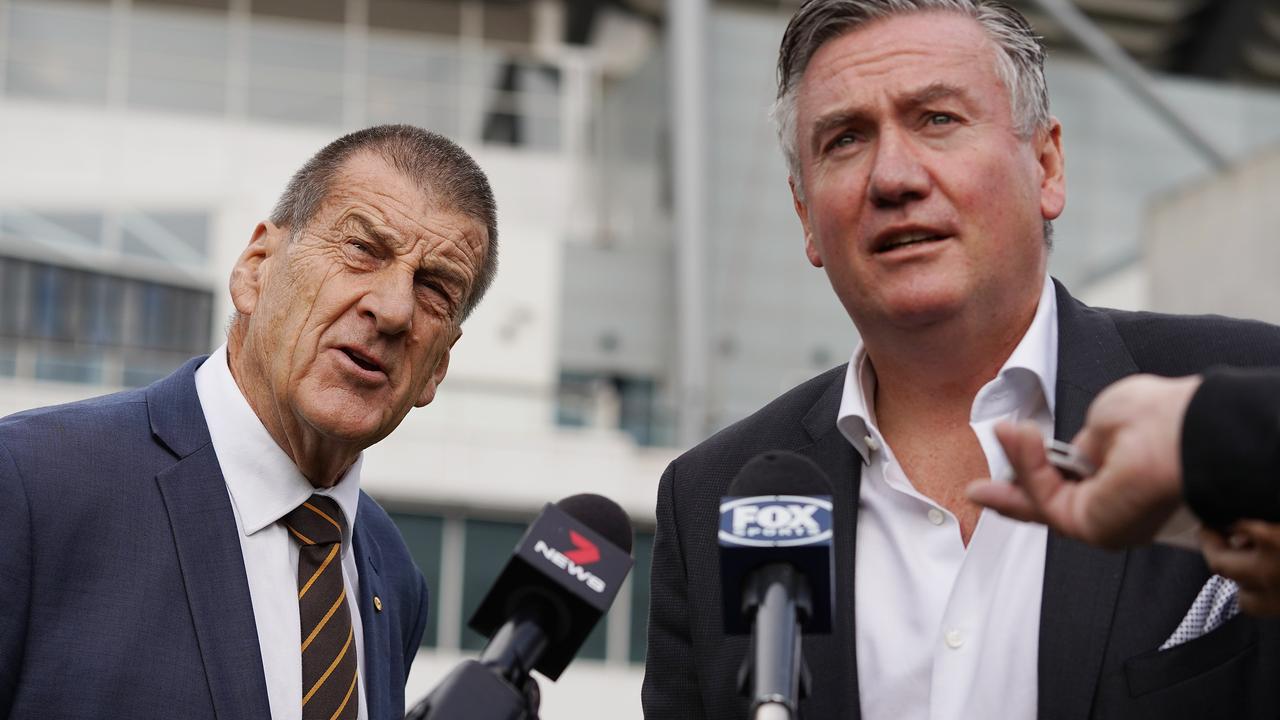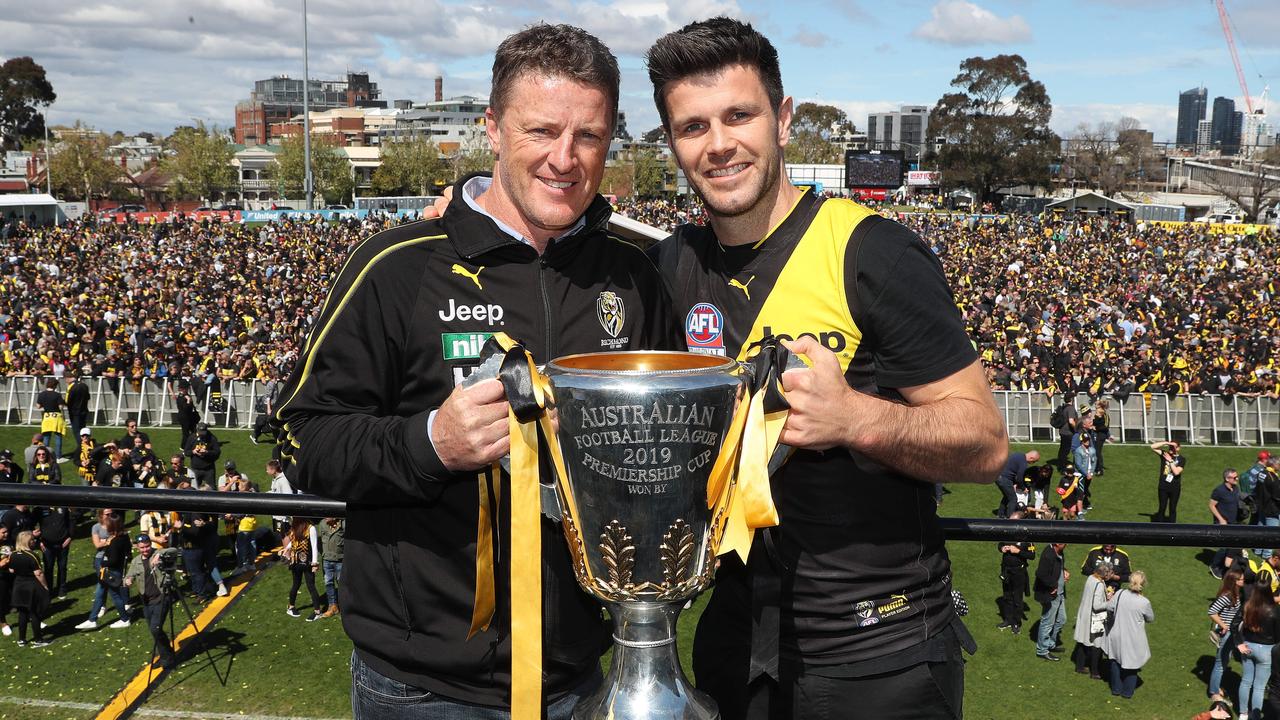Carlton is ready to test how desperate the Crows are for early AFL draft picks to secure Jack Lukosius
A decade has passed since Carlton closed the “once-in-a-lifetime” deal to recruit Brownlow Medallist Chris Judd - and now the Blues are expecting a repeat as the Crows eye SA under-age forward Jack Lukosius in the AFL national draft.
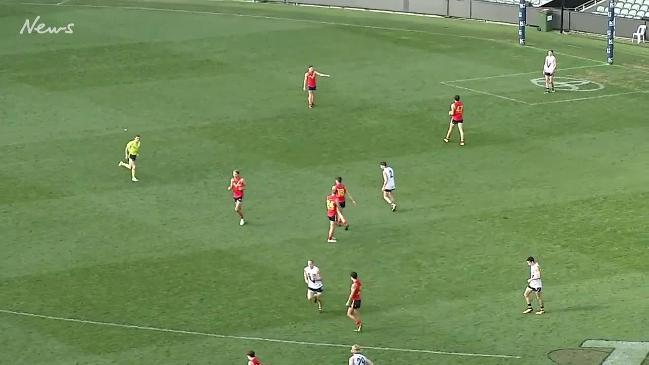
Michelangelo Rucci
Don't miss out on the headlines from Michelangelo Rucci. Followed categories will be added to My News.
OUTGOING Carlton football boss Andrew McKay describes the Crows as “desperate” to secure Jack Lukosius, the best South Australian under-age forward to sign an AFL draft form since Matthew Pavlich in 1999.
“I do know that Adelaide are desperate to have Lukosius go to them; local boy, very good player,” McKay said midweek.
How desperate will determine if the Blues are, 11 years later, to relive the super trade that still sparks debate as to which club - Carlton or West Coast? - scored the most in the Chris Judd-Josh Kennedy trade.
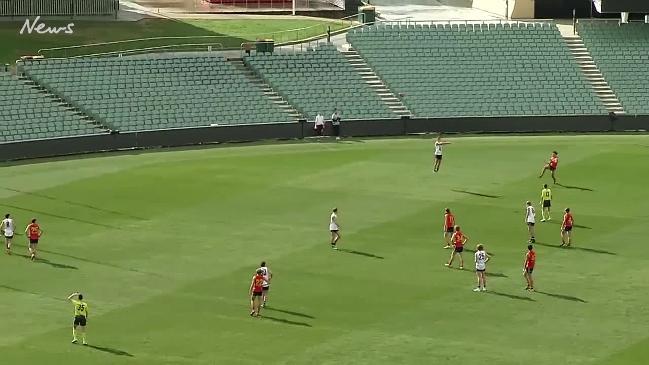
The Blues gained a Brownlow Medallist who won his second Brownlow in 2010. The Eagles still have a Coleman Medallist who has replaced Peter Sumich as the greatest goalkicker in West Coast colours - and Kennedy today cannot regret being the player who was sacrificed at Carlton to deliver Judd.
Carlton, if it holds the wooden spoon, will have the first pick in November’s AFL national draft. If the Blues, as many are urging, petition AFL House for a priority pick, Carlton will have the first two picks - and will be waiting for Crows list manager Justin Reid to knock on the door at Princes Park.
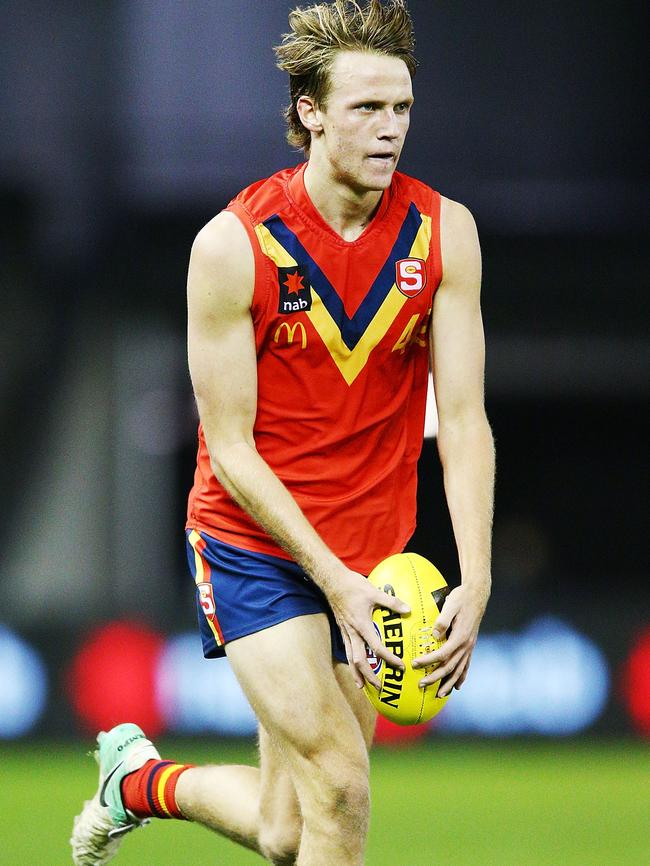
After losing so many players to Adelaide (Sam Jacobs, Eddie Betts and Bryce Gibbs), McKay and Silvagni will savour this inevitable moment.
Adelaide will, by ranking 11th at the end of the home-and-away season, call no sooner than 10th in the national draft if Carlton have a priority pick and Gold Coast loses free-agency co-captain Tom Lynch.
Pick No. 10 will not secure Lukosius.
And it is highly doubtful that McKay and Steve Silvagni will take just picks No. 10 and 15 from the Crows in a trade for either call No. 1 or 2. So how will Carlton play on this “desperate” state at West Lakes for the teenager who will be expected to carry the Adelaide attack for a decade as many expected (before injury shattered a dream) with Trent Hentschel and Wayne Carey?
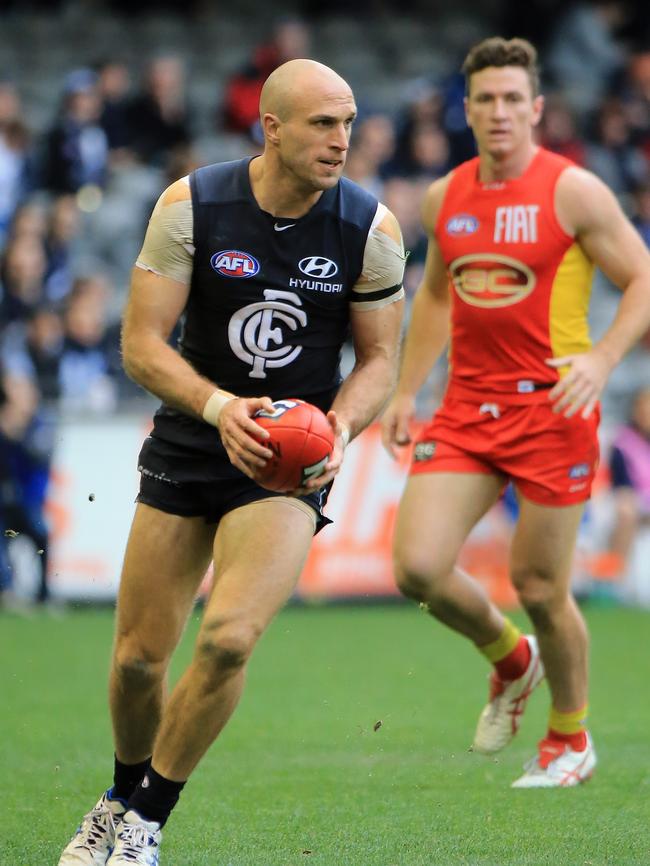
And who would the Crows serve up to close a deal to hold the first pick - rather than the second - in November’s AFL national draft. Clearly, No. 1 cannot be left with the Blues in case Carlton has its own desire to have Lukosius in its attack.
Now the speculation on Mitch McGovern’s eagerness to stay at West Lakes, less than a year after signing a three-year contract extension, becomes more interesting. At 23 and capable of playing in key roles either side of centre makes the West Australian most tempting to the Blues in a parcel of draft picks from Adelaide.
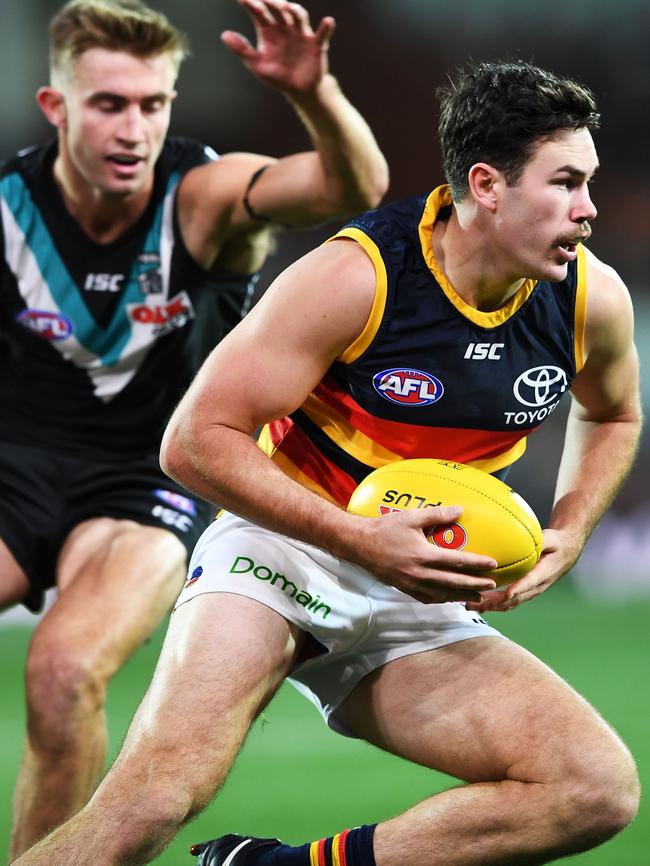
Brisbane chief executive Greg Swann was the main man in Carlton’s play to sign Judd - and to trade Kennedy. His reflection on that grand deal with the Eagles are relevant today as the Crows consider a deal that keeps Lukosius in Adelaide: “Ultimately, you’ve got to give up something to get something good.”
“So,” added Swann, “we gave up pick three, Kennedy, swapped pick 20 for 46 and kept the priority, pick one, which was a massive plus because we got the best player in the draft and the most outstanding kid (Matthew Kreuzer) in the one year.
“That was a once-in-a-lifetime opportunity.”
History might prove that opportunity happens twice in a lifetime for Carlton.
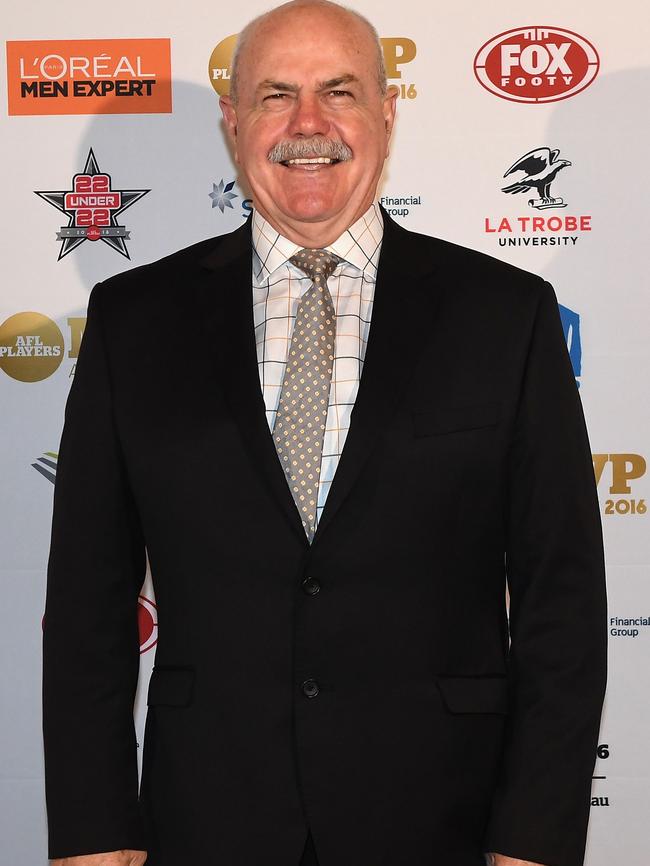
QUOTE OF THE WEEK
“While it is a human right for players to move to the club of their choice for whatever reason, personally I applaud the stayers; those who have the resilience and strength of character to remain one-club players. So very well done to Rory Sloane.”
HALL of Fame Legend LEIGH MATTHEWS
REALITY BITES
GREAT DIVE
AS AFL players took over the Fox Footy studio this week, one of the most-revealing moments came from Brownlow Medallist Patrick Dangerfield, Melbourne co-captain Nathan Jones and GWS team leader Phil Davis in the big seats with On The Couch on Monday evening.
Every soccer player ever accused of diving would have been reaching for a red or yellow card on hearing each of these three wise men highlight how AFL players will - in particular with the sliding rule forbidding contact below the knees - take advantage of any new scribble in the law books to win a free kick.
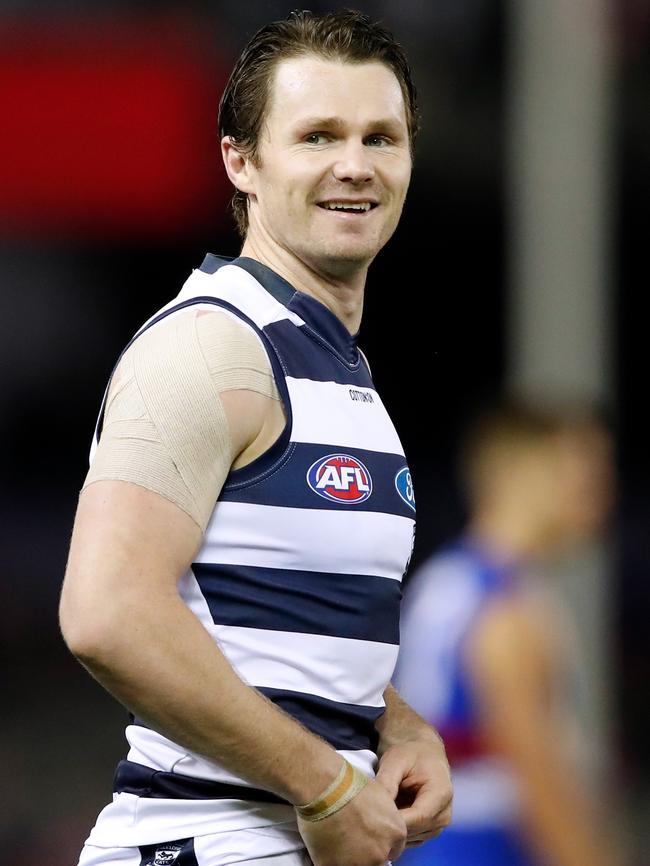
Dangerfield, who is appearing more and more as a statesman while wearing the president’s hat at the AFL Players’ Association, has repeatedly noted the chance to manipulate the rule written in 2012 after Sydney forward Gary Rohan had his leg broken as he was clipped by a sliding Lindsay Thomas (then at North Melbourne).
“Sliding to the knees is the perfect one; we have had a few instances of that a few years ago and all of a sudden we change a rule,” Dangerfield said. “Now, there are players who exploit it; fall to ground easily and the player who is putting their head over the ball and hunting the ball is disadvantaged.”
And who wants to mention the “diving” that appears to be fashionable in AFL marking contests now - and probably more so when there are four field umpires?
MIGHTY EFFORT
EVERY four years there is the question during the Olympics of which nation is punching above its weight division by winning gold medals on a per capita basis. It is a key performance indicator for New Zealand ...
Croatia’s rise to its first soccer World Cup final this weekend - against France for the all-European finale in Moscow - brings the question of when did Jules Rimet’s tournament last have such a “small” population band together to beat much bigger nations to the biggest world football game played every four years.
The answer: 1950.
Croatia, with just 4.17 million, is the smallest nation to qualify for the World Cup final since Uruguay claimed the old Rimet trophy in 1950 when there were 2.4 million living in the South American country.
The Uruguayans beat a much-fancied Brazil team 2-1 at the Maracana Stadium to claim their second World Cup after winning the first title at the first world tournament in 1930.
HIT OF THE WEEK
“THEY should have handed the keys back in. Those penalties were draconian. The club was in disarray; it was virtually toxic. If you look at Carlton, have they recovered from that yet? I would say no.”
FORMER Carlton coach DENIS PAGAN on the consequences of the AFL-imposed penalties on the Blues for salary cap breaches at the turn of the century. For the record, Carlton in 2002 was hit with a fine of $930,000 after exceeding the salary cap by $1.37 million during 2000-02; stripped of selections in the 2002 national draft (numbers 1, 2, 31 and 34) and its first and second-round picks in the 2003 draft.

